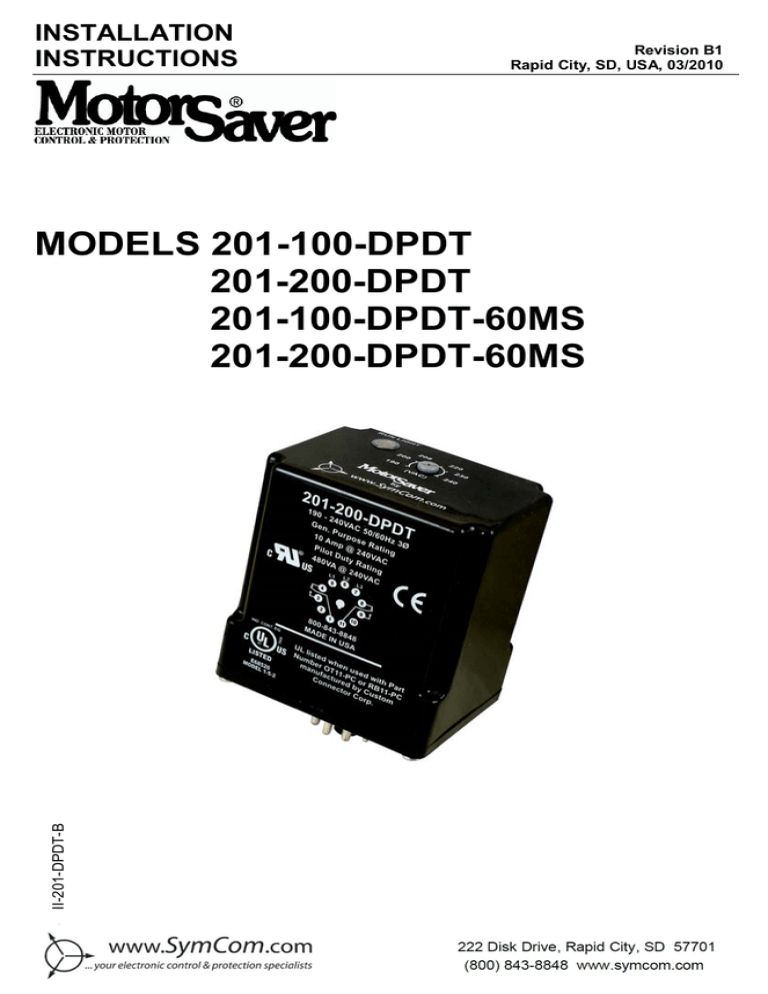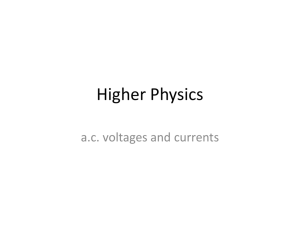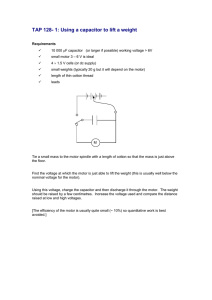
INSTALLATION
INSTRUCTIONS
Revision B1
Rapid City, SD, USA, 03/2010
II_201-XXX-DPDT_B1
II-201-DPDT-B
MODELS 201-100-DPDT
201-200-DPDT
201-100-DPDT-60MS
201-200-DPDT-60MS
2880 North Plaza Drive, Rapid City, South Dakota 57702
(800) 843-8848 · (605) 348-5580 · fax (605) 348-5685
BE SURE POWER IS DISCONNECTED PRIOR TO INSTALLATION!
FOLLOW NATIONAL, STATE AND LOCAL CODES.
READ THESE INSTRUCTIONS ENTIRELY BEFORE INSTALLATION.
SymCom’s MotorSaver® Model 201-XXX-DPDT is a voltage monitor designed to protect 3-phase
motors regardless of size. The MotorSaver® is used on 120V or 240V, 50/60 Hz motors to protect
from damage caused by single-phasing, low voltage, phase-reversal, and voltage unbalance. The
201-XXX-DPDT products feature two isolated Form C relay outputs.
CONNECTIONS
1.
Mount the MotorSaver® in a convenient location in or near the motor control panel. If the
location is wet or dusty, it should be mounted in a NEMA 4 or 12 enclosure.
2.
Mount an 11-pin socket to the motor control back panel (SymCom P/N OT11-PC, sold
separately, is required for UL rating).
3.
Connect L1, L2 and L3 (terminals 5, 6 & 7 on the relay socket) to the LINE SIDE of the motor
starter (Figure 2).
4.
Connect the output relays to the circuitry to be controlled. See Figure 1 for pin-out diagram.
The output relays are isolated, so different control voltages may be applied to each one. For
motor control, connect a normally open contact in series with the magnetic coil of the motor
starter as shown in Figure 2. For alarm operation, connect a normally closed contact in series
with the control circuit as shown in Figure 2.
5.
Plug the relay into the relay socket.
© 2010 SymCom, Inc. All Rights Reserved
2
L2
6
L1
5
L3
7
4
8
3
9
2
10
1
11
Figure 1: Pin-Out Diagram
Figure 2: Typical Motor and Alarm Control Wiring Diagram
© 2010 SymCom, Inc. All Rights Reserved
3
SETTING
LINE VOLTAGE ADJUSTMENT: Rotate the VOLT ADJUSTMENT (VAC) knob to the nominal 3phase line voltage feeding the motor to be protected.
Figure 3: Voltage Adjustment (201-200-DPDT Model Shown)
OPERATION
Apply 3-phase power to the motor. The MotorSaver’s green RUN light will blink during the one
second 1 restart delay. Once the restart delay time has expired, the MotorSaver® will energize its
output contacts (open the normally closed and close the normally open contacts) and the green RUN
light will illuminate.
If the contacts do not energize and the green RUN light does not illuminate, see the troubleshooting
section.
STATUS
LIGHT PATTERN
RUN
GREEN
RESTART DELAY
GREEN
REVERSE-PHASE
RED
UNBALANCE / SINGLE-PHASE
LOW VOLTAGE
RED
RED
Table 1: Diagnostic Indicator Lights
NEMA MG1 UNBALANCE FORMULA
% Voltage Unbalance = Maximum Deviation from the Average x 100%
Average
Example: The measured line-to-line voltages are 203, 210, and 212.
Average = 203 + 210 + 212 = 208.3
3
The maximum deviation from the average is the largest difference between the average
voltage (208.3) and any one voltage reading.
208.3 - 203 = 5.3 210 - 208.3 = 1.7 212 - 208.3 = 3.7
The maximum deviation from the average is 5.3.
5.3 x 100 = 2.5% unbalance
208.3
1
Models 201-XXX-DPDT-60mS have a 60mS restart delay
© 2010 SymCom, Inc. All Rights Reserved
4
TROUBLESHOOTING
SYMPTOM
No lights are on the unit seems
completely dead
Red light is blinking
(on initial power-up)
Red light is blinking
(after the motor has
previously been running)
Red light is blinking in
this pattern
Red light is on steady
LIGHT
PATTERN
N/A
RED
RED
RED
RED
SOLUTION
Measure the three line-to-line voltages. If any
of the voltages are below the specified
operating voltage, the MotorSaver® does not
have enough power to operate its internal
electronics. See specifications for allowable
voltage ranges. If the voltages are correct, call
SymCom at (800) 843-8848 or (605) 348-5580.
Turn off the 3-phase power. Swap any two
leads powering the MotorSaver® (L1, L2, or L3)
There is a 50-50 chance of connecting L1, L2
and L3 correctly the first time. Reapply 3-phase
power.
The incoming lines have been reverse-phased.
The MotorSaver® is preventing the motor from
running backwards. Correct the phase
sequence.
The voltage is unbalanced or single-phased.
Measure the incoming line voltages and
calculate the % unbalance. If the voltage
unbalance does not exceed the 4.5%
unbalance reset value, call SymCom at (800)
843-8848 or (605) 348-5580.
The voltage is low. Measure the three line-toline voltages. Calculate the average. If the
average is 7% or more below the nominal
voltage as selected by the LINE VOLTAGE
ADJUST, the MotorSaver® is functioning
properly. If the voltage is within 7%, call
SymCom at (800) 843-8848 or (605) 348-5580.
The MotorSaver® is timing through the restart
delay and will energize its contacts when
finished.
Green light blinks and
motor is not running
GREEN
Green light is on steady,
but motor does not start
GREEN
© 2010 SymCom, Inc. All Rights Reserved
The MotorSaver® is in run mode. Ensure other
control devices are allowing the motor to start.
Check control circuit for loose wires or
malfunctioning switches.
5
DIMENSIONS
*The OT11 socket is 35mm DIN rail compatible. The use of OT11 socket is required for Models
201-XXX-DPDT to qualify as UL Listed devices.
© 2010 SymCom, Inc. All Rights Reserved
6
MOTOR SAVER® 201-XXX-DPDT SPECIFICATIONS
Functional Characteristics
Adjustments/Settings
Low Voltage (% of setpoint)
Trip
Reset
Voltage Unbalance
Trip
Reset
Trip Delay Time
Low voltage and unbalanced voltage
Models with -60mS Option
Single-phasing faults (>15%UB)
Models with -60mS Option
Reset Delay Times
After a fault
Models with -60mS Option
After a complete power loss
Models with -60mS Option
Input Characteristics
3-Phase Line Supply Voltage
201-100-DPDT (-60mS)
201-200-DPDT (-60mS)
Frequency
Output Characteristics
Output Contact Rating - DPDT
Pilot Duty
General Purpose
General Characteristics
Environmental
2
Ambient Operating Temperature
Relative Humidity
Maximum Input Power
Standards Passed
Electrostatic Discharge (ESD)
Models with -60mS Option
Radio Frequency Immunity, Radiated
Fast Transient Burst
Models with -60mS Option
Surge Immunity
IEC
ANSI/IEEE
Hi-Potential Test
Safety Marks
UL listed (OT11 octal socket required)
CE
Dimensions
Weight
Enclosure
Mounting Method
Wire Gauge
Terminal Torque for P/N OT11 Socket
2
90%±1%
93%±1%
6%
4.5%
4 seconds
0.5 seconds
2 seconds
0.5 seconds
2 seconds
60 milliseconds
2 seconds
60 milliseconds
95-120VAC
190-240VAC
50/60 Hz
480VA @ 240VAC
10A @ 240VAC
-40° to 70°C (-40° to 158°F)
10-95%, non-condensing per IEC 68-2-3
5W
IEC 61000-4-2, Level 3, 6kV contact, 8kV air
IEC 61000-4-2, 3kV contact, 6kV air
150 MHz, 10V/m
IEC 61000-4-4, Level 3, 3.5kV input power and controls
IEC 61000-4-4, Level 3, 2.5kV input power and controls
IEC 61000-4-5, Level 3, 4kV line-to-line; Level 4, 4kV line-toground
C62.41 Surge and Ring Wave Compliance to a level of 6kV lineto-line
Meets UL508 (2 x rated V +1000V for 1 minute)
UL508 (File #E68520)
IEC 60947-6-2
2.330” H x 2.375” W x 4.125” D (with socket)
9 oz
Polycarbonate
Plugs into 11-Pin OT11 Socket
12-22 AWG Solid or Stranded
12 in.-lb.
The ambient air temperature is the air temperature directly surrounding the product.
© 2010 SymCom, Inc. All Rights Reserved
7
For warranty information, please see Terms and Conditions at
www.symcom.com
Visit us at www.symcom.com to see
our complete product listing!
Need something special?
Contact SymCom today
for your custom solution!
800-843-8848
© 2010 SymCom, Inc. All Rights Reserved
8




